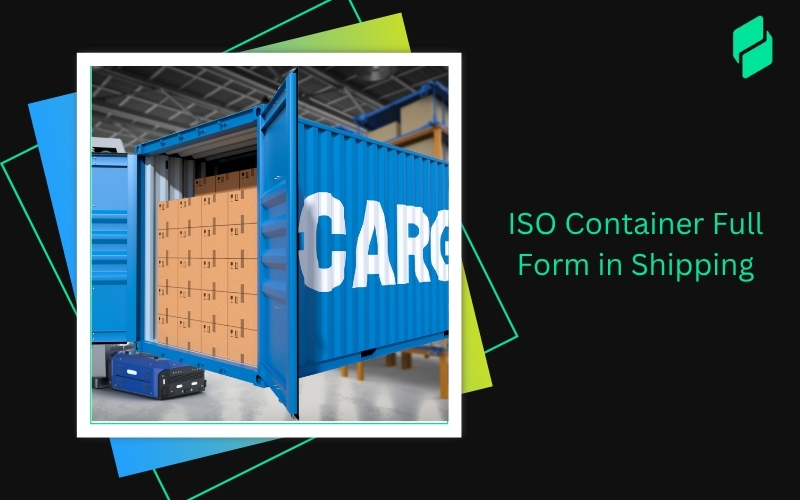An Import Export Business in India involves the buying, selling, and trading of products between India and other countries.
This business is attractive for several reasons, including the potential for high profits, the opportunity to participate in the global economy, and the possibility of expanding market reach.
However, it also comes with challenges, such as navigating complex regulations, understanding market trends, and identifying potential markets and customers.
Optimize your business: use unlimited savings with Pazago fulfilled now!
Get Started ->Key Aspects of an Import Export Business in India
- What an Import Export Business is: An import export business is a venture that deals with trading goods and services between different countries, including India. It involves purchasing products from one country and their subsequent sale in another, or vice versa.
- Why it is attractive: The import export business in India is appealing for several reasons. Firstly, it allows businesses to tap into the vast potential of the global market, which can lead to increased profits and growth.
Secondly, it will enable businesses to diversify their product offerings, reducing reliance on a single market. Finally, it also allows businesses to take advantage of the comparative advantages of different countries, such as lower production costs or access to unique resources.
- Key Challenges: Some key challenges faced by businesses in the import export business in India include navigating complex regulations and compliance requirements, understanding market trends and demands, identifying potential markets and customers, and managing logistics and transportation.
Additionally, businesses must adapt to changing market conditions and competition and stay updated on the latest industry trends and developments.
By understanding the basics of the business and implementing effective strategies, businesses can overcome these challenges and thrive in the global marketplace.
Scoping Out the Market
When establishing an import export business in India, conducting thorough market research to identify potential opportunities and assess the competitive landscape is crucial. Here are some key steps to follow:
Market Research for Import Export:
Gain a comprehensive understanding of the Indian market's growth and potential challenges as a crucial foundation for your import-export endeavors. Analyze the demand for products and services you plan to import or export and identify your target audience.
In-depth market research should extend to understanding the specific requirements of your target market. Explore the alternatives overseas buyers or sellers currently utilize, and strategically plan your approach accordingly.
This insight will enable you to fine-tune your value proposition and develop effective product/service differentiation strategies based on the market's current dynamics.
Assessing Import and Export Opportunities:
Identify profitable product niches and evaluate the competition. Determine the unique selling points that will make your business stand out.
Analyzing Competitive Landscape:
Study the competitors in the import export business in India and understand their strengths and weaknesses. This will assist you in setting your company apart and identifying a market niche.
By conducting comprehensive market research and assessing the competitive landscape, you can identify the best opportunities for your import export business in India.
This will help you make informed decisions, mitigate risks, and ensure the success of your venture in the dynamic and growing Indian market.
Develop A Successful Import Export Strategy

To develop a successful import export strategy, consider the following steps:
Products to Trade: Identify products with high demand in the target market and assess the competition. Analyze trends, market demands, and emerging opportunities to determine the best products to trade.
It is also advantageous to trade in a product you have an unfair advantage in procuring. Check which products you can source at lower costs than your competitors due to supply chain efficiencies, scale of operations, geographic proximity, or expertise in manufacturing.
Trading in such select products where you have a cost or quality advantage will help maximize profits.
Finding Potential Markets: Research and identify potential markets for your products. Consider factors such as market size, growth potential, and competition. Utilize trade agreements and partnerships to expand your market reach.
Compliance and Legalities: Understand the regulatory framework governing import export businesses in India, including the FTP 2023, export control regime, and import documentation and procedures. Obtain necessary licenses and approvals and ensure compliance with regulations.
Building Strategic Partnerships: Cultivate strong relationships with potential agents, distributors, and partners to facilitate market entry and expansion. Due diligence is essential to identify credible and reliable partners.
E-commerce Exports: Consider the potential of e-commerce exports, as they offer a promising category with distinct policy interventions and immense growth potential.
Developing Regional Strategies: Craft offerings according to the target group, create strategies for specific regions, consumer segments, and economic groups, and gain early acceptance.
By following these steps and adhering to the guidelines set by the FTP 2023, you can build a robust import-export strategy that will help you establish a successful import-export business in India.
Understand Laws And Regulations

To ensure a seamless process, it is essential to understand laws and regulations, obtain the necessary permits and licenses, and maintain quality control and standards. Key aspects to consider include:
- Understanding Laws and Regulations: The Foreign Trade (Development & Regulation) Act 1992 governs India's import and export system. It is essential to familiarize yourself with the regulations and policies, such as the Foreign Trade Policy.
- Obtaining Necessary Permits and Licenses: To conduct import export business in India, you must register with the regional licensing authority and obtain an Import Export Code (IEC). Depending on the items you plan to import or export, you may also need to obtain specific licenses, such as restricted items.
- Ensuring Quality Control and Standards: To maintain a competitive edge in the global market, it is crucial to adhere to quality control and standards set by regulatory bodies. This includes complying with export-import procedures and documentation requirements.
Your business can succeed by understanding the laws and regulations, obtaining the necessary permits and licenses, and ensuring quality control and standards.
Logistics and Transportation are essential for the smooth flow of goods between countries. The demand for efficient logistics services in India is rising, thanks to the growing import export business.
As a business owner, you need to familiarize yourself with the transportation charges, customs duty charges, and other involved costs to ensure profitability. A customs housing agent (CHA) can help you with this aspect.
A CHA understands the complexities of import and export regulations and compliance. They can assess your shipments and advise you on accurate paperwork, duties, and other fees.
Engaging a trusted CHA takes the stress off you and ensures a smooth customs clearance process.
Rather than wading through lengthy customs forms and documents, a CHA is your representative to handle all documentation and filings. They know the nuances of customs rules for your business location and can navigate any changes efficiently.
This lets you focus on your core operations without delays or penalties for incorrect submissions.
Accurate import and export cost projections are key for business planning and profitability. A CHA can review your item descriptions, quantities, and countries of origin/destination and provide a detailed cost-benefit analysis.
This includes applicable tariff codes, duties payable, and required temporary importation or export refund bonds. You can then make informed decisions based on comprehensive costing data.
Building strong supplier and buyer relationships is vital for India's successful import export business. Establishing trust and communication with suppliers and buyers can lead to long-term partnerships and business growth.
Additionally, having a reliable freight forwarder and customs clearing agent can ease the transportation process and help you navigate the logistical challenges of international trade.
Leveraging technology for operations can significantly improve the efficiency of your import export business in India.
Utilizing digital tools and platforms can help you manage inventory, track shipments, and communicate with suppliers and buyers more effectively. Ultimately, this may result in lower expenses and more client pleasure.
Conclusion
Effective management of import export operations is critical for achieving success in the import export business in India.
The import export business in India offers significant opportunities for growth and profitability. However, it also presents a unique set of challenges that must be addressed to ensure success in this highly competitive sector.
By focusing on logistics and transportation, building strong supplier and buyer relationships, and leveraging technology for operations, you can create a solid foundation for your business and ensure its long-term success.


.png)








